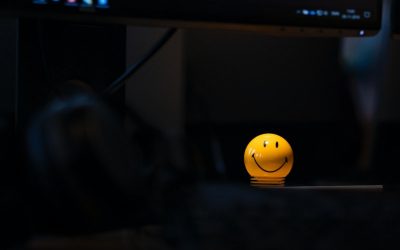Social anxiety disorder, formerly known as “social phobia” is a far more common problem than we actually realise. Next to generalised anxiety and depression, social anxiety is one of the biggest mental health problems faced by human beings. But just what is social anxiety?
Everyone gets anxious in social situations from time to time, especially when you are meeting a group of people for the first time, going on a first date, or having to do a presentation on speech in front of a crowd for example. These are common areas where people may experience social anxiety; however, social anxiety disorder is when you experience a fear that you are being evaluated and negatively judged in such a way that it debilitates your functioning and leads to a complete avoidance of particular social situations. When people are struggling with social anxiety disorder, the mere thought of going out with a group of people or having to do a presentation will result in significant emotional distress and fear. In many cases the social anxiety leads to people avoiding social gatherings with friends and family, withdrawing from work obligations and can even have a negative impact on relationships with their partners. As such isolation and loneliness are common feelings for those struggling with social anxiety.
The most effective way of dealing with social anxiety is to work with a therapist, psychologist or counselor in therapy. Here you will be able to identify your specific triggers as well as the ‘safety behaviours’ that you employ in stressful situations. Through the use of cognitive behaviour therapy, the therapist will assist you in identifying irrational, negative thoughts that perpetuate the anxiety and help you to replace these beliefs and thoughts with more rational and positive ones.
Other techniques in overcoming social anxiety include teaching yourself some relaxation techniques and learning to use them in stressful situations. Included here are deep breathing exercises that will help you to relax when the anxiety becomes overwhelming and help you to focus on what is really going on. In many cases, those struggling with anxiety continually evaluate themselves through the eyes of the others around them, which is an irrational, if not impossible, task. Being able to relax and think clearly will also help challenge any irrational ideas and thoughts that are exacerbating the situation.
Although it is difficult, forcing yourself to go out with friends and engage socially is actually a helpful thing to do. The more you avoid the thing you fear, the more power you give it and the more you reinforce your anxiety around it. Engaging socially and deliberately identifying positive interactions and experiences will help you to realise that your fears and beliefs about yourself and social situations are, for the most part, unfounded. Make sure you have someone you trust with you and you could even check in with them every now and then to see what their perceptions are of you, thereby challenging any of your own negative self-evaluations.
Social anxiety disorder is a serious and very debilitating condition. If you think you may be struggling with it, contact a qualified psychologist for therapy to help you and support you.



